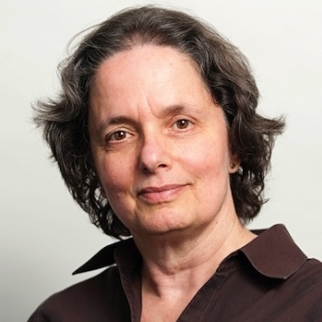As kids slid and bounced at the Purim carnival in the courtyard of Valley Beth Shalom Synagogue a couple of weeks ago, a handful of people accompanied Rabbi Noah Zvi Farkas down to a tiny space in the shul’s basement for a very different kind of celebration. In a room that had once been just a dark, cluttered storage space, shelves are now filled with neat stacks of food and rows of grocery bags, each stuffed with enough provisions to feed a family of four for a day or two.
On March 15, I joined in singing a Shehecheyanu prayer as this little room was rededicated as the heart of a joint venture between VBS and SOVA, the community food and resource program of the Jewish Family Service of Los Angeles.
Farkas tapped a new mezuzah into the doorway, and the room was officially blessed. But the real blessing had already begun long before, in the way that VBS has taken on the task of discretely and thoughtfully filling in gaps on behalf of SOVA in helping those in need who don’t know where else to turn.
In good times and bad, many synagogues collect food for SOVA in those large bins that seem to adorn garages and gateways throughout the area’s Jewish community. SOVA picks up the food for its food banks in the Valley, on the Westside and on Beverly Boulevard, which are open to all every Monday, Wednesday, Friday and some Sundays. VBS has taken this act of chesed a step further, turning every aspect of their SOVA collection and distribution into a learning opportunity — for the staff, the day school and religious school students, and for the recipients of the food. Because VBS has become a SOVA satellite, a place where, when the nearest food bank is closed or overwhelmed, anyone can come for a bag of groceries — no questions asked. Enough to last until the regular facilities re-open.
These days, some of those in need are coming from the shul’s immediate neighborhood — even a mostly well-off community like Encino can harbor stories of hardship and even desperation. Others come from farther away, and the only reason the temple tracks them is to help keep people in the loop on resources for how to get more, when just a bag won’t suffice. The VBS service is available Mondays, Tuesdays and Thursdays, from 10 a.m. to 2 p.m., and at present at least five to 10 people are stopping by each day.
They come to the guards, who call the synagogue offices, and someone — staff or volunteer — carries a bag out. “For years we’ve been collecting cans without any eye to the real needs of the people,” Farkas said. This way, they’re “putting a face on hunger.”
A version of the program was in place before Farkas came to work at VBS six months ago, but then it was not as sophisticated as it has now become — good timing, you might say. The storage was a jumble, and the program of what to give away far less organized. Small lessons had to be taught to donors — such as that it’s not a great idea to give a Costco-sized box of cereal, for example, because then that takes up a whole bag and doesn’t allow room for other staples — like canned vegetables or peanut butter.
To give what’s healthy and fresh is another lesson Farkas has been hammering home. Donating rejects off our pantry shelves is not good enough — it should be new food, recently acquired and nutritionally balanced.
And that’s where an additional learning opportunity came in. VBS’s day and religious schools both had nutrition as part of their curriculum, but now they apply those lessons to food to be given away. “The food bank space is a curriculum space,” Farkas said. He’s made the basement classroom more fun with a wall of decoupage images of colorful food items — Jewish, ones, of course — borsht, matzah, eggs, you name it. Interspersed with the pictures are quotes from Jewish tradition about sharing and caring. “When you give to a hungry person, give him your best and sweetest food” is one.
Students study the text, then pack the bags; a nice break from the regular study. And right now, Farkas is thinking about Passover: VBS intends to collect 700 pounds of matzah by the holiday and is already well on its way.
All this effort is accompanied by some good news for SOVA, too, according to Fred Summers, director of operations for the organization, who was present at the dedication. While one might expect that he’d be pretty stressed by the economic downturn right now, he was happy to share that throughout Los Angeles, people are really stepping up to help.
There’s been a 42 percent increase in need, he was quick to point out: Whereas in the month of January and February just a year ago, about 5,000 people came to SOVA’s food banks, this year that number rose to more than 7,000. But, he also said, “so far we’re maintaining.” That’s because people, like those at VBS, are recognizing that giving food is not optional, and we all need to give. And Summers clearly emphasized, we need to continue to do so.
“For a long time, SOVA has served the needs of people who have lived for a long time in poverty,” he said. “Now we’re seeing people who are unaccustomed, who never imagined they’d be in a food pantry.”
And when I asked how they assess the level of need, he laughed a laugh tinged with sadness. “I don’t judge by what car people are driving. We don’t question whether the need is genuine. The truth is, people don’t come to a food pantry if they don’t need our help.”























 More news and opinions than at a Shabbat dinner, right in your inbox.
More news and opinions than at a Shabbat dinner, right in your inbox.